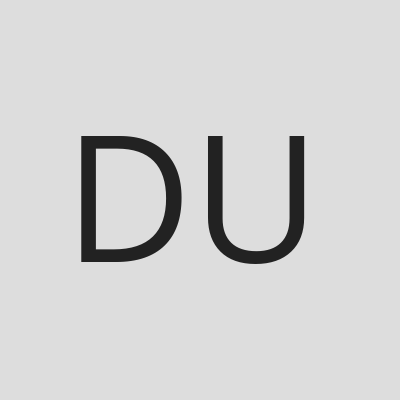 The event will take place in E223 at St Patrick's Campus, DCU on Monday 27th January from 16.30 - 19.30 pm (with drinks and refreshments)
The event will take place in E223 at St Patrick's Campus, DCU on Monday 27th January from 16.30 - 19.30 pm (with drinks and refreshments)About this Event
MULTIPLIER EVENT FOR THE ERASMUS+ LETHE PROJECT
SOUNDING THE SILENCES IN HISTORY CLASSROOMS
Dr Caitríona Ní Cassaithe, Assistant Professor in History Education at the Institute of Education, DCU invites you to join her and her colleagues Peter Whelan and Dr Maria Barry at St. Patrick’s Campus for the Irish launch of The LETHE Project, an innovative digital platform that has been designed to uncover the forgotten and excluded stories of our past. This event will be of interest and value to teachers (upper primary and secondary), school leaders, parents, initial teacher education educators, stakeholders in history and museum education and researchers. We welcome and value your participation at this event.
Inspired by Greek mythology’s River Lethe - known as the “River of Oblivion”, the LETHE Project explores the histories often left out of traditional curricula through the themes of gender, nature, children, people and borders. From the stories of women, people with disabilities, people of colour, LGBTQ+ communities and ethnic minorities to the roles played by children, migrants and even nature, the LETHE digital platform provides teachers and students with the tools to work as historians to both explore and to recover silenced narratives. It does this through active pedagogies such as object-based learning and historical enquiry.
The event will take place in E223 at St Patrick's Campus, DCU on Monday 27th January from 16.30 - 19.30 pm (with drinks and refreshments included).
The event will begin with an introduction to the LETHE Project and an overview of the digital platform, teaching methodologies and resources. A short keynote presentation will be given by Frances Moss, the new Director of Drumcondra Education Centre and Vice Chair of the Council of Europe’s Observatory on History Teaching in Europe. This will be followed by workshops based on the three Irish cases, facilitated by the members of the LETHE team: Dr Caitríona Ní Cassaithe, Peter Whelan and Dr Maria Barry. Participants will then have an opportunity to explore the platform themselves. The evening will conclude with a wine reception with canapes.
We would be delighted if you could join us
Dr Caitríona Ní Cassaithe
LETHE Project Partner, DCU
Please register before 20th January
Tickets are limited but the event will be streamed at zoom link
PROGRAMME OUTLINE
16.00 Registration, workshop selection and Tea/Coffee
16.30 Introduction to the Erasmus+ LETHE Project
16.50 Guided tour of the platform and underpinning pedagogies
17.30 Keynote presentation by Frances Moss
17.40 Workshops 1, 2 and 3 and free exploration of other stories
19.15 Wine and canapes and lots of discussion
THE WORKSHOPS
Workshop 1: How can ordinary things make invisible histories visible?
This workshop, co-created with Emma Ward, a young Irish Traveller journalist, wheelchair user and activist, draws inspiration from Emma’s newspaper article about her grandmother Kathleen, who sadly passed away at the start of January. This workshop walks participants through the stories and traditions of Irish Travellers through a curated collection of artefacts, images and narratives that is rooted in the LETHE approach (object-based historical enquiries). Through the activity “What is the origin story of Irish Travellers?” participants will work as historians, exploring oral histories and evidence-based theories about Irish Traveller origins. This workshop not only provides an introduction to Traveller culture but also challenges participants to think critically about history, culture and the importance of oral traditions.
Workshop 2: How can an object found in an attic uncover a hidden story?
In this workshop, participants will investigate how the boys of St. Joseph’s Male National School in East Wall, inspired by the burgeoning Irish Transport and General Workers’ Union, formed their own union and went on strike to demand fairer treatment in their own school. Participants will work as historians using historical documents such as school registers, newspaper reports and census records to trace the lives of the young strikers and debate conflicting reports of the event. This workshop challenges us to rethink the role of children in history by emphasising their capacity to organise, articulate grievances and drive social change.
Workshop 3: Have the exploits of women been “photoshopped” out of history?
Using the iconic photograph of Patrick Pearse’s surrender to British forces, and its subsequent alteration by the Daily Sketch, participants will explore themes of marginalisation, bias and the role of women in shaping history. The workshop begins by comparing the original photograph, which captures Pearse alongside British Brigadier General William Lowe and Elizabeth O’Farrell, with the edited version where O’Farrell’s presence has been erased. Using census records, primary sources and historical interpretations, participants will work as historians to explore Elizabeth O’Farrell’s life both before and after 1916 and how she has been remembered over time.
Optional activity: Historical Silences: The question of whether Julia Grenan and Elizabeth O’Farrell were in a same-sex relationship remains unresolved due to the lack of explicit historical evidence. While their lifelong companionship and shared involvement in significant events like the 1916 Easter Rising provide a basis for speculation, definitive proof is absent, leaving their relationship open to interpretation. Whether romantic or platonic, their bond represents a significant aspect of their lives and invites deeper reflection on how marginalised groups, particularly women and LGBTQ+ individuals, have been excluded from dominant historical narratives.
Event Venue
DCU St. Patrick's Campus Room E223, Drumcondra Road Upper, Dublin, Ireland
EUR 0.00











